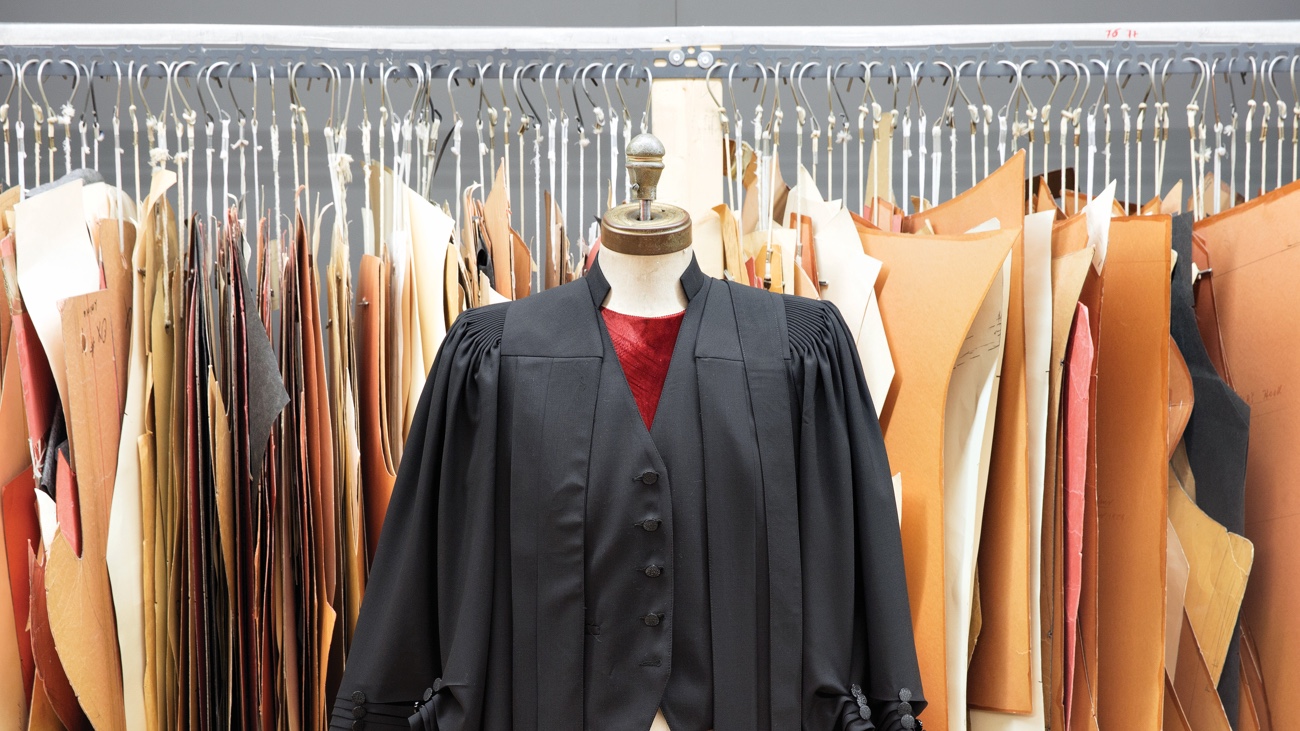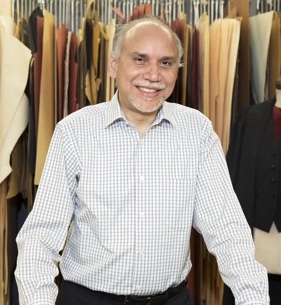
Not many jobs require the same uniform they did four centuries ago. But modern lawyers still have to don a flowing black robe when they appear before most judges. And this June, law students will get to wear them when they get called to the bar.
Outfitting many of them will be Harcourts, a company that’s been making legal gowns in downtown Toronto since 1842. That makes it the oldest robemaker in North America.
Though the gowns look the same as they did back then, the workforce that stitches them together has evolved with the fabric of the nation. Just like George Harcourt, the British immigrant who founded Harcourts, most of the 24 sewers who work at the company were born outside of the country. They hail from Turkey, China, Sierra Leone, Iran, Pakistan, Romania and most recently, Syria. As refugees from the war-torn country have arrived in Canada, Harcourts has offered jobs to as many as it can.

Shafiq Beig, head tailor, Harcourts
“I knew how to cut and sew, but I had never worked as a tailor,” says Siran Tchopourian, a soft-spoken refugee from Aleppo, who’s been at Harcourts for more than a year. “I used to make clothes for me and for my mother, and it helped me here,” she says, with a smile. Tchopourian is one of seven Syrians now working at the Adelaide Street tailor shop. At first, Tchopourian fled from Syria to Beirut, but she made her way to Canada with her husband and children in 2015. “I’m grateful we came here, without harm to anyone, thank god. I’m so happy here.”
Trained as a civil engineer in Syria, Tchopourian is not the first person at Harcourts to learn sewing on the job. Head tailor Shafiq Beig arrived in Canada from India in 1989 with a law degree. After he struggled to find a job in law, Harcourts offered him a position. He’s been there ever since.
Beig hopes to give his Syrian colleagues an opportunity to make a new start. “They’ve gone through trauma, so it’s quite a challenge,” he says. “But they are working very hard. With two hands, two eyes and a good heart they sit down at the machine and we’ll train them.”
Photography by Chris Thomaidis
